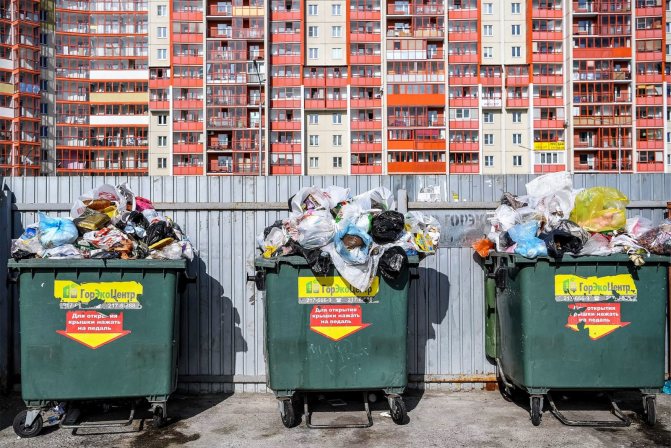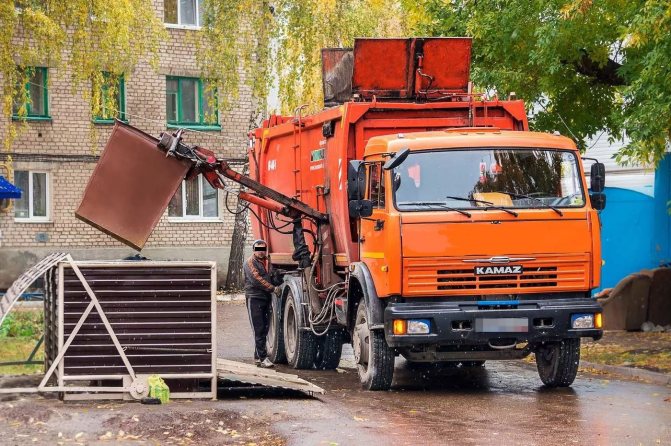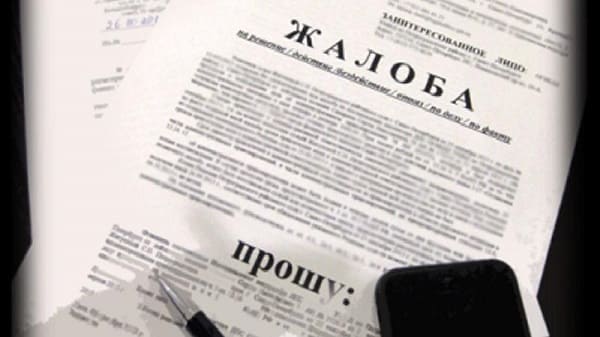Complaint to the Municipal Administration
This is the first authority that people turn to to restore order in a city, district or town. When drawing up a document, indicate who is being addressed, who is addressing and for what problem. Photos of the contaminated area must be attached. There are several ways to send a letter of complaint:
- Fill out the electronic form . To do this, you need to go to the official page of the municipality management. The form to fill out has a standard template - all you have to do is fill in the required fields. One of these fields is the content of the problem. It needs to be presented briefly, but very clearly. Evidence is attached in a separate field: usually these are photographs.
- Send an email to the administration . In the document you must indicate your email address to which you want to send a response.
- Send a complaint using the services of Russian Post . In this case, be sure to send a registered letter so that you know exactly when the complaint has been delivered to the recipient.
- Contact the Head of Administration personally . To do this, make an appointment in advance and present your identification document during the appointment.
- Send a letter of complaint to a special box for receiving citizens' appeals.
How often should garbage be collected?
Utility workers can refer to the standards of the 80s, according to which garbage collection must be carried out at least twice a week.
But that's not true. When the bins are overfilled and waste spills out, residents' outrage is understandable. The reasons may lie not only in the poor performance of the regional MSW operator. Excessive accumulation of municipal solid waste (MSW) is caused, among other things, by the failure of municipal services to fulfill their duties, as well as by incorrect placement of waste disposal sites.
The management company, housing cooperative or homeowners' association are responsible for the maintenance of container waste collection sites. For reference!
It is not difficult to understand that MSW removal does not occur often. If a car comes to collect and remove garbage once every 4-7 days, then this is wrong. In such cases, residents can rightly contact the regional operator with a complaint. The answer may be puzzling; in it, the management of the organization may refer to the norms of the second half of the 80s of the last century, which actually provided for the removal of MSW at least twice a week.
These norms were duplicated later, in the 2000s, by the regional governments. Thus, they have a regulatory framework that guides operators with such infrequent removal of MSW.
When should garbage actually be collected and on what days?

At the moment, operators in organizing waste management must be guided by the norms of the Law on Industrial and Consumption Waste (No. 89-FZ). In accordance with its standards:
- Waste management is organized in compliance with current legislation;
- The contract for the removal of solid waste, which is concluded with the population, must comply with the standard agreement approved by the federal government;
- Additions to this agreement can only be included by agreement of both parties - the operator and the consumer.
The standard agreement approved in November 2020 (Resolution No. 1156) provides that the frequency of MSW removal is established in the annex to this agreement (clause 2). That is, theoretically, the operator could impose on consumers a frequency of waste collection that was beneficial to him.
However, the Legislator provides for Sanitary Rules for the maintenance of territories of populated areas (42-128-4690-88). They indicate that temporary storage of garbage in yards should not lead to its decomposition or rotting (clause 2.2.1). This document establishes the frequency of waste removal from container sites:
- In the cold season at temperatures up to +5°C - at least once every three days;
- In the warm season at temperatures above +5°C - at least once a day.
Utility services are responsible for the arrangement of container sites for waste and the cleanliness around them. For reference!
That is, operators are limited by these standards and have no right to exceed them. But it is also necessary to take into account that the local Sanitary and Epidemiological Services of each city can adjust these standards in order to prevent unsanitary conditions in the places where MSW is collected. As a result, regional governments may issue regulations requiring garbage collection to be carried out daily at any time of the year.
What if they require additional payment?

The operator may refer to additional costs associated with transportation, but the consumer does not pay for it. Cost of waste removal services:
- Specified in the standard agreement;
- Cannot exceed the size of a single tariff.
The unified tariff for the services of the regional operator is approved by local authorities in accordance with the established procedure. For reference!
The regional operator has no right to exceed the size of the single tariff. In this case, you can safely file complaints with regulatory authorities.
To the Department of Housing and Communal Services
This is another executive body whose responsibilities include monitoring the cleanliness of the city. The body is divided into district and district divisions. Contact this department through the official housing and communal services websites. To do this, you need to go to their official reception section.
Residents of the city of Moscow can seek help by clicking on the link. After filling out all the standard fields, you need to describe the essence of the complaint (its volume does not exceed 4000 characters). Attachment of evidence is mandatory.
Another option for submitting documentation is to send it by email. The address of your unit can be found on the official website of the Department of Housing and Communal Services.
Alternatively, you can use the Russian Post service to deliver your complaint.
Regulatory regulation
A fairly large number of regulations, from laws to departmental standards and instructions, are devoted to the problem of the struggle for the cleanliness of the territories of populated areas and compliance with the sanitary and epidemiological well-being of residents. Their goal is to regulate the timely and safe collection of waste from human economic activities in populated areas. Their removal and disposal.
The most significant directly applicable regulations are:
- Law No. 52-FZ of 1999, regulating relations in the field of sanitary and epidemiological safety of the population;
- Law No. 89-FZ of 1998, regulating the procedure for collecting, sorting, removing and recycling or recycling waste;
- Housing Code of the Russian Federation (Article 157.2) - establishes the procedure for waste removal operators;
- Code of Administrative Offenses of the Russian Federation (Article 8.2) – establishes administrative liability for non-compliance with the rules for handling solid waste;
- Decree of the State Construction Committee of the Russian Federation No. 170 of 2003 - on the rules for the improvement of housing stock in populated areas;
- Order of the Ministry of Natural Resources of the Russian Federation No. 721 of 2011 - on the procedure for recording solid waste;
- SanPiN 42-128-4690-88 – sanitary standards for the maintenance of territories of populated areas.
In addition to the listed documents adopted at the federal level, each governing body of an urban or rural settlement has local acts: orders, instructions, resolutions establishing and specifying the listed norms in relation to local conditions.
To the Housing Inspectorate
You can also complain about garbage dumps in the district to the Housing Inspectorate. The filing methods are the same as in previous cases:
- filing a complaint on the official portal of the authority (in the “Public Reception” section);
- sending a registered letter via Russian Post;
- letter to email;
- call the hotline.
You can find out the addresses and hotline numbers at the following link.
Where to complain about non-removal of garbage
Before expressing dissatisfaction with the operator’s work, you should study the standards for the removal of solid waste. You should also know that quantitative and temporary deviations are acceptable - naturally, they should be insignificant.
If removals are carried out consistently irregularly, you can call on an unscrupulous local operator by filing a claim with the following authorities:
- antimonopoly committees;
- Rospodrebnadzor departments;
- housing inspection;
- Ministry of Housing and Communal Services;
- district prosecutor's office.

Territorial divisions of Rospotrebnadzor
This body is contacted in cases where a landfill is formed due to the work of business entities, shops or supermarkets.
The fastest way to file a complaint is to leave a statement on the official portal of Rospotrebnadzor. You can also send a letter via Russian Post.
Before writing a complaint to Rospotrebnadzor, write a note in the “Book of Complaints and Suggestions” of the store or supermarket. Only if the owners do not respond to your request within 15 days, do you have grounds to write a complaint to the departments of Rospotrebnadzor.
The period for consideration of the complaint is 30 calendar days . If you want to speed up the review process, draw up a collective complaint and support it with evidence: photographs of the landfill and a copy of the entry in the “Book of Complaints and Suggestions.
What the law says
According to the norms of Federal Law No. 73, clause 2. Art. 51, dated January 10, 2002, it is prohibited to discharge any waste into the subsoil or onto the soil surface, into water protection zones, or into surface and underground water bodies themselves.
Provisions of Federal Law No. 89, art. 12, dated June 24, 1988, indicates a ban on storing garbage in the following places:
- within populated areas;
- in recreation areas;
- in park areas;
- near medical and recreational areas;
- in catchment areas.
All places where waste disposal is allowed are identified in the special register of waste disposal sites of the State Regional Regional Organic Disposal Organization.
If any site is not on the list, then the waste dumping is considered illegal and must be immediately contained. Anyone can view the list.
For violation of the rules established by law, administrative liability is provided.
Prosecutor's office
This body is contacted if complaints to all of the above services have not brought a positive result. A complaint to the prosecutor's office can describe not only the problem with the landfill, but also the inaction of other services, which in itself is a violation of the law.
When filing a complaint, be sure to indicate which authorities you have already contacted. As evidence, attach copies of requests and responses from these authorities. Attachment to the complaint is a copy of an identity document.
The response to your complaint must come no later than 30 days from the date of delivery of the document. The response includes a list of measures taken to solve the problem.
Grounds for complaint
Failure to comply with the requirements of regulations regarding the conditions for placing garbage sites and the frequency of garbage collection is the reason for filing a complaint. As the responsible parties fail to act, the application is sent to higher authorities to resolve the problem. Among the addressees are:
- Management Company;
- regional operator;
- local administration;
- housing and communal services management;
- housing inspection;
- Rospotrebnadzor;
- environmental control;
- prosecutor's office;
- court.
First of all, the complaint is sent to the management company or regional operator. These organizations are directly responsible for the waste removal procedure.
Bodies considering complaints about solid waste removal
Issues related to household waste collection are regulated and controlled by several structures:
- In case of untimely removal of waste and uncleaned areas where containers are placed, a claim is submitted to the Management Company (MC), HOA, housing cooperative, the enterprise responsible for direct cleaning, the City Administration or the Housing and Communal Services Department.
- In case of delay in disposal of solid waste on an ongoing basis and in case of inaction of the Criminal Code, a complaint is submitted to the Housing Inspectorate.
- If garbage sites are systematically filled with household waste, creating a threat to the sanitary safety of the population, a claim is submitted to Rospotrebnadzor or the Environmental Control Department of the Administration.
- If any of the listed bodies has not responded to the complaint and the problems have not been resolved, citizens can contact the Prosecutor's Office.
- The final authority to protect the rights of owners of household waste is the court. A claim should also be filed here if lower authorities have not taken measures to eliminate violations.
In each case of revealing facts of non-fulfillment or dishonest performance by the operator of his duties, it is advisable for consumers to record them in the form of an act. For example, in case of non-compliance with the garbage collection schedule. The act is prepared with two more interested parties, using photos and videos. The document is sent to the company within three days from the date of its preparation.
Appeal procedure
If the operator fails to fulfill his duties, it is most advisable to file a complaint with the Management Company, Homeowners Association or the dispatch service of the organization that deals with solid waste removal. The appeal can be made on paper or electronically by sending it to the company’s e-mail.
If the violations are systemic in nature, then you can simultaneously contact the territorial division for housing and communal services, the state. housing inspection or Rospotrebnadzor.
In case of unsatisfactory performance of these institutions (the complaint has not been considered or measures have not been taken against the operator to eliminate violations), an appeal may be submitted to the prosecutor's office. A complaint is written here about both the operator’s poor quality services and the inaction of the above authorities.
A similar complaint is filed with the court in the form of a statement of claim, especially if the action or inaction of persons contributed to causing material or moral damage to the plaintiff. Here it is important to take into account the timing of filing a claim: no later than 3 months from the moment of violation of citizens’ rights and 1 month from the moment of receiving an official response from the executive authorities to the claim or from the moment of its filing if no response was received.
Whose responsibilities include cleaning up the landfill?
After completing the appeal procedure, the question arises of who should remove unauthorized rubbish heaps. According to the rules, the cleanup must be done by the person on whose territory the landfill is located. So, if the rubble is not removed within the established time frame, then work to clean up the territory will be organized by Rospotrebnadzor.
When the territory is a public place inside or outside the city, cleaning falls on the local government. In some cases, the ownership of territories is difficult to establish. In this situation, you can obtain data from technical passports or by making a request to the housing and communal services department.
“One of the effective ways to influence the perpetrators is to publicize the problem that has arisen. You can create groups on social networks, call, write to the media, create polls and polls. This tactic will be especially useful in cases where business interests are behind the creation of a landfill, since it is difficult to influence such offenders alone.”
Ignatiev M.V., lawyer, Moscow








